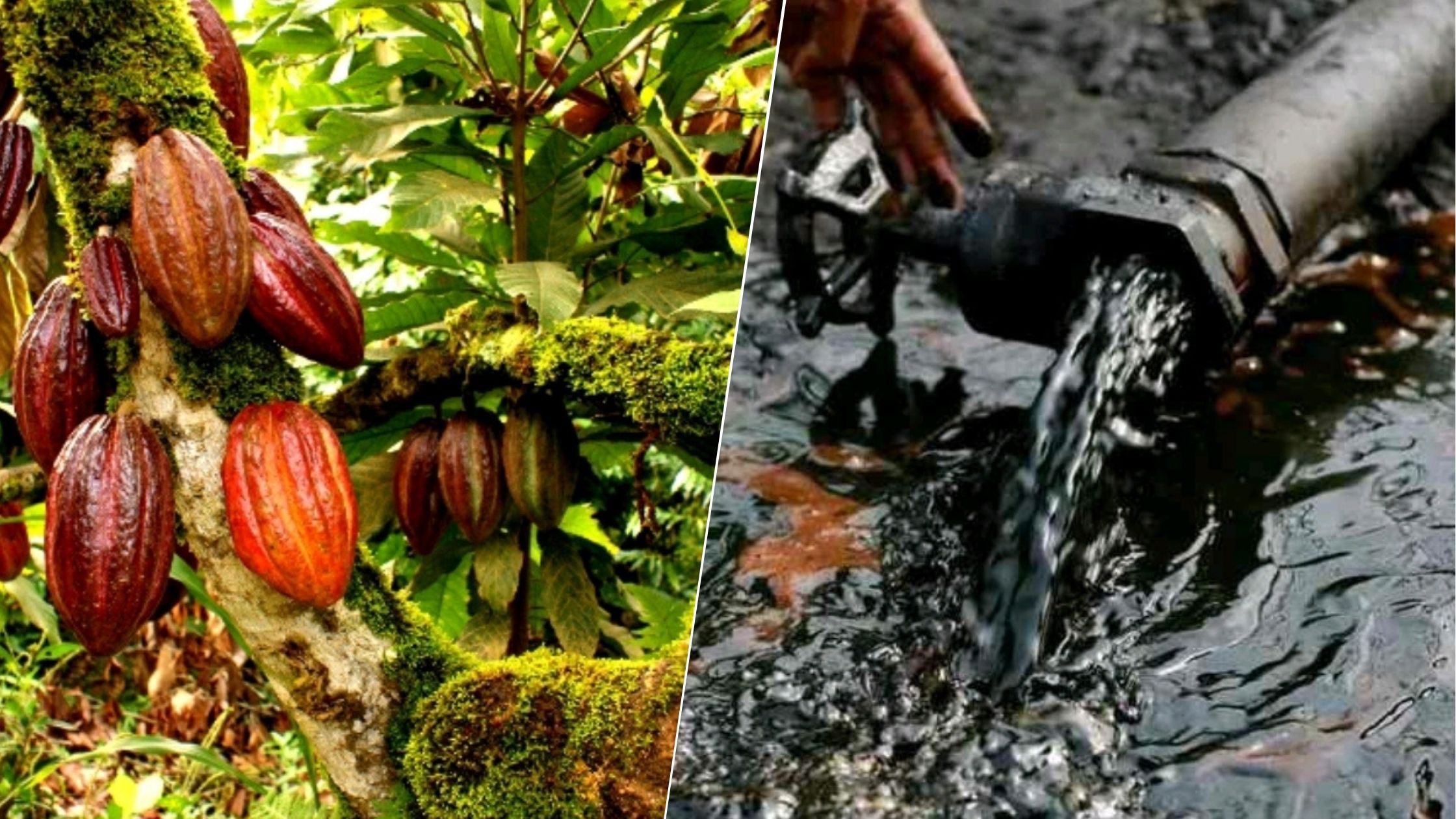![]()
![]()
![]()
FROM OIL FIELDS TO COCOA FARMS: THE QUIET REVOLUTION DIVERSIFYING NIGERIA'S RICHES

Nigeria, a nation long recognized as a significant cultivator and supplier of cocoa beans, is poised for a transformative shift in its agricultural strategy. In a decisive move to unlock greater economic value, the West African powerhouse is no longer content with merely exporting raw produce. Instead, it is actively charting a course to become a major global processor of cocoa, a strategic pivot affirmed by Vice President Kashim Shettima during a recent meeting with Chris Vincent, President of the World Cocoa Foundation (WCF).
This ambitious redirection is driven by a clear understanding of the substantial disparities in earnings between raw materials and finished products. As Vice President Shettima eloquently put it, "a tonne of cocoa will fetch you $9,000 now, but processed cocoa will get you $30,000. If you turn them into chocolate bars, that might fetch you $50,000." This stark contrast underscores the immense potential for increased national revenue, job creation, and economic diversification that lies within the cocoa value chain.
Evidence of Nigeria's unwavering commitment to this new vision is already materializing. The recent approval for the establishment of a National Cocoa Management Board signals the government's dedication to creating a structured and supportive environment for the industry's growth. This board is expected to play a crucial role in regulating, promoting, and facilitating investments across the cocoa sector.
The World Cocoa Foundation recognizes the timely nature of Nigeria's ambition. President Chris Vincent highlighted the severe global cocoa supply shortage, noting that prices have quadrupled in the past three years. This presents an unprecedented opportunity for Nigeria to expand its sustainable cocoa production and, crucially, its processing capacity, filling a critical void in the global market. "We are in the middle of a global cocoa supply shortage... The next two to three years are an opportunity for growth," Vincent emphasized.
Beyond the undeniable economic benefits, Nigeria's pivot is deeply rooted in a commitment to social welfare. Vice President Shettima passionately articulated the nation's immense human capital, particularly its vibrant youth. With an average age of 17, Nigeria boasts a large, energetic, and willing workforce eager to participate in the agricultural sector if provided with the necessary opportunities. "We have the manpower, the average age of the nation is 17. We have very virile young men who are willing to work if they have the opportunity," he affirmed. This focus on job creation underscores the government's understanding that economic prosperity must go hand-in-hand with inclusive growth.
To accelerate this transformation, Nigeria is actively seeking partnerships. The Vice President pledged the nation's readiness to collaborate with the World Cocoa Foundation, indicating a willingness to leverage international expertise and investment. A tangible step in this direction is the personal engagement of Vice President Shettima with Governor Agbu Kefas of Taraba State to secure a 10,000-hectare land in the Kurmi Local Government Area. This significant land allocation is earmarked for the WCF and other partners to expand their investments in Nigeria's cocoa industry, fostering large-scale, sustainable production.
The Nigerian leadership's commitment extends beyond policy pronouncements. Vice President Shettima's personal involvement and eagerness to "walk the talk" by engaging directly with the process, even referencing his own farm, signifies a profound dedication to driving this agricultural revolution. This hands-on approach aims to inspire confidence and demonstrate the government's serious intent to see this vision through.
In essence, Nigeria is not just looking to cultivate cocoa beans; it is aiming to cultivate a thriving, value-added industry that transforms raw produce into high-value products. This strategic pivot, fueled by strong government commitment, an abundance of human capital, and a favorable global market, positions Nigeria to become a dominant force in the global cocoa processing landscape, shifting from being merely a supplier to a significant player in the lucrative world of chocolate and cocoa-derived products. The journey from beans to billions has truly begun.
Posted on: Thu Jul 24 2025 Back to postsContact us on any of our socials for inquiries
Other Categories
